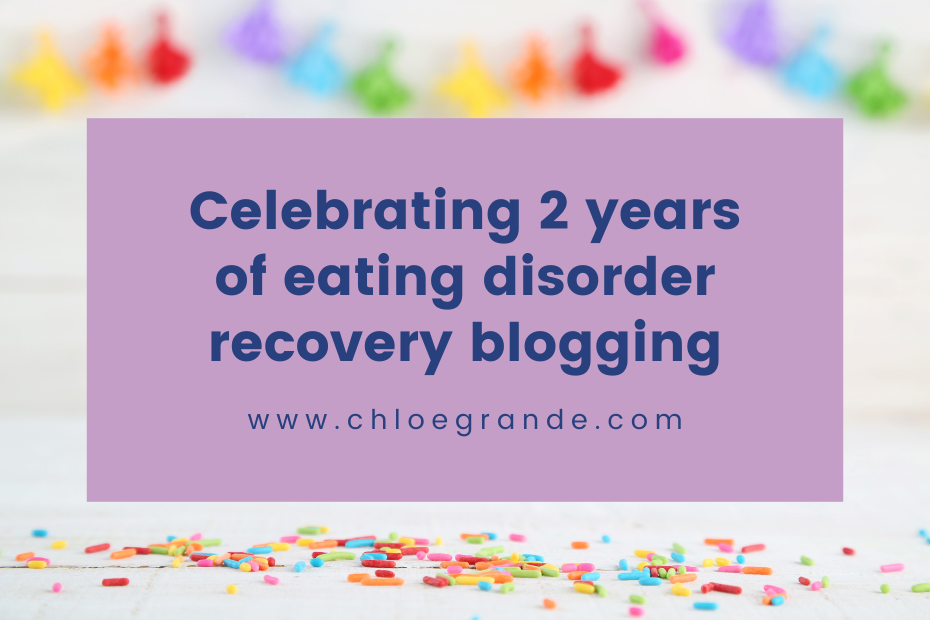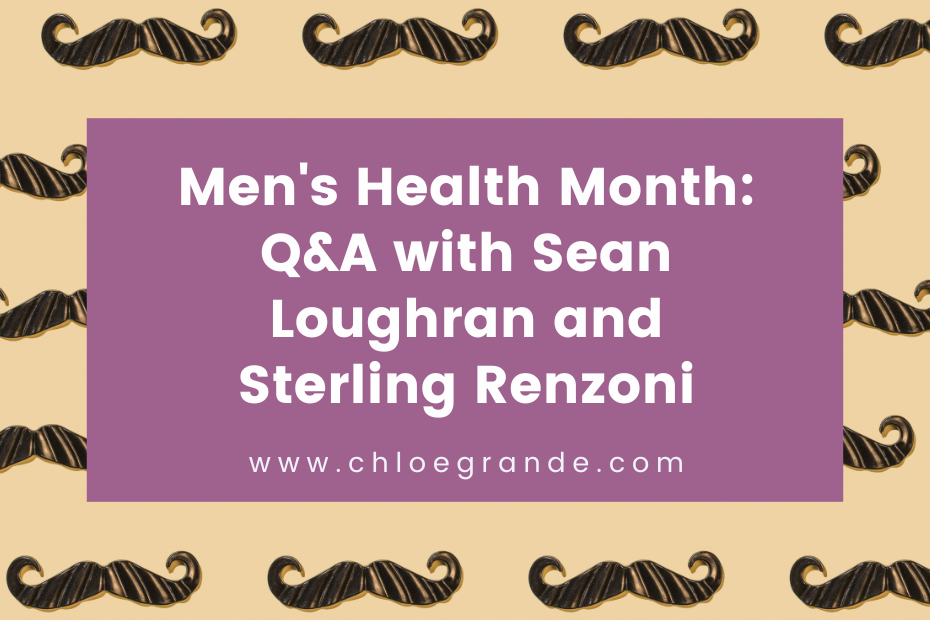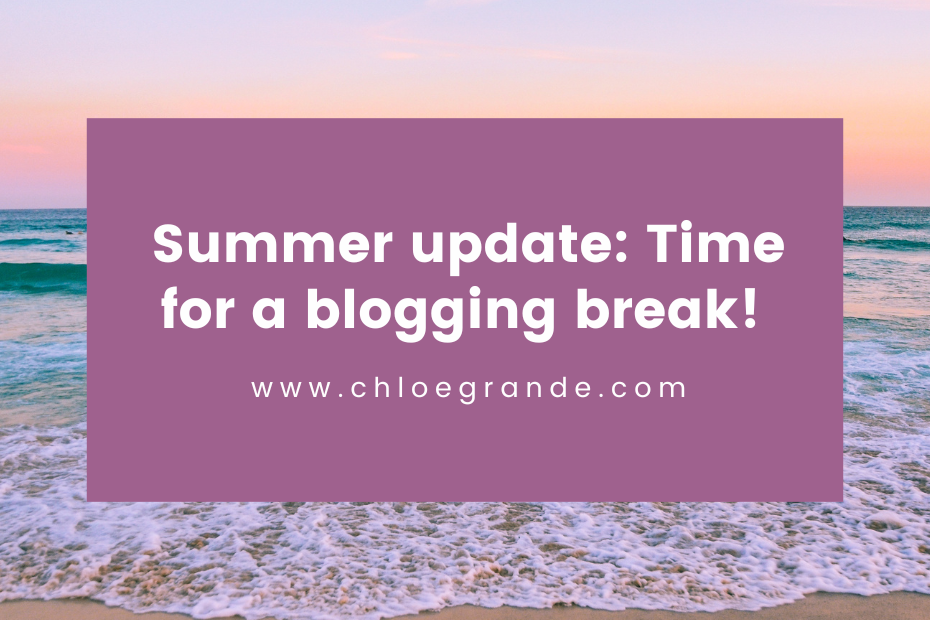For people with eating disorders, awareness events like February’s Eating Disorders Awareness Week (EDAW) can bring up mixed feelings.
On one hand, we’re glad that a highly misunderstood and stigmatized mental illness is getting recognition. Eating disorders seem to fall outside of “mainstream” mental health conditions because they’re hard to understand and people with EDs are often blamed for causing the illness themselves. The latter of which is completely untrue – but it’s a stereotype that persists nonetheless. So EDAW can be an important time to address those stigmas head-on.
But on the other hand, there’s the risk of triggering content being shown during EDAW (such as before and after pictures or detailed descriptions of ED behaviours). I used to follow the EDAW hashtag on Instagram, but after noticing a lot of posts with graphic, explicit details of ED behaviours and harmful photos, I quickly unfollowed the hashtag. It can be the same with media coverage – while there’s an opportunity to talk about eating disorders, sometimes these stories are paired with photos of emancipated women or scales, which further perpetuate unhelpful stereotypes.

This year's Eating Disorders Awareness theme
From my perspective, one of the best things we can do to make EDAW a helpful week is to include the voices of people with lived and living experiences, as much as possible. Our voices are crucial to ensure that diverse stories are being told.
The theme of this year’s EDAW is Transforming the Narrative from Asks to Action, all about understanding the connection between EDs and other co-occurring conditions to help people take action.
Building off this theme, I posed some questions to individuals with lived or living experience and those who support them to get an idea of what’s top of mind for those impacted by eating disorders. Here’s what they had to say.

What action would have the BIGGEST impact on people with eating disorders?
Alexis Sauls Ramos is a social worker who spent many years as a therapist in an out-patient treatment program for adolescents and young adults, and now works as the Eating Disorder Prevention Specialist at the Bulimia Anorexia Nervosa Association (BANA) in Windsor, Ontario.
“Beyond simply better access to treatment, access to treatment that honours who they are, their identities, their experience and their readiness. Evidence in treatment is essential, but so is honouring the person who is in front of you seeking help. I would like to think that we will see more people seeking treatment and feeling able to commit to treatment if they feel the space they are in does this,” she said.
Erin, an individual with lived experience, added that a wider range of services are needed: “Creating treatment that targets all stages of the illness from early intervention to specialized services for individuals with severe and enduring eating disorders.”
When we think of eating disorder services and treatment options, what comes to mind? It’s probably not painting or journaling. Yet these types of interventions can be just as useful (if not more!) to someone who is experiencing an eating disorder and struggling to see results with more traditional types of therapy.
Jenn Hicks is an internationally-recognized Nia movement instructor, trainer and personal trainer, as well as someone with lived experience. When asked about what would have the biggest impact, she said: “More funding for non-medical, arts-based services, like Sheena’s Place.”
A.P., another individual with lived experience, added that “having proper access to care as soon as we need it and want it” is a must.

What's one thing we can STOP doing to help support people with eating disorders?
For anyone who’s read my blog before, you know how much I enjoy a good Instagram Story poll. When I posed this question to my 1,300 followers, a clear pattern emerged. We really, really, really need to stop commenting on other people’s appearances. Even individuals who haven’t had EDs mentioned how much they dislike unsolicited comments on their bodies: “I think we should just stop making comments about people’s bodies in general.”
Other suggestions of things we should quit doing included:
- Stop shaming people with eating disorders
- Stop promoting toxic diet culture and body expectations
- Stop assuming eating disorders are about what you weigh or how you look
- Stop naming specific eating disorder behaviours or triggering details
Alexis and Erin both shared concerns with BMI as a diagnostic tool. “Not only is BMI not a good measure of illness that doesn’t account for most people with EDs, but if the person in front of you is reporting that they feel significantly impaired and impacted by their illness, then they deserve treatment,” Alexis explained.
Erin added, “All BMI does is feed into the belief that eating disorders are weight disorders, rather than mental illnesses.”

What's one thing we can START doing to help support people with eating disorders?
With this question came a recognition of the rigidness of treatment models and lack of diversity within the ED community overall. Responses looked at challenging beliefs and biases about health and bodies – things which are deeply ingrained in our diet culture-obsessed society.
Specifically, here’s what folks had to say when asked about one thing we can start doing:
- Start acknowledging diversity within the ED community
- Start offering more support for dual diagnosis, and decolonize medical and wellness settings
- Listen to and individualize care, which includes access to trauma-informed care
- Start creating programming that is flexible and adaptable to unique individual needs
- Start valuing lived or living experiences in professional and research spaces

What's one thing we can KEEP doing to help support people with eating disorders?
Despite the changes that need to be made in the ED field, there are steps in the right direction that fuel hope and positivity to those with eating disorders and their loved ones. Responsible storytelling is one way to dispel myths and centre the most underrepresented voices.
Unwavering support can go a long way, too. As difficult as it is to watch someone suffer with an eating disorder, keep believing in us.
“Don’t give up on us and step away. We often already feel alone and hopeless,” one Instagram follower with lived experience noted.
Alexis summed it up perfectly: “We need to keep showing up every day for people with eating disorders, for their families, for the folks who are struggling to accept their body. Showing up isn’t just having these important conversations, but pushing for meaningful change in the spaces where we work and live.”

What action are you taking this Eating Disorders Awareness Week?
- Alexis: “I will continue to spend each day challenging weight bias in both my personal and professional life. I will continue to have conversations challenging the status quo in treatment spaces, and champion any person who shows up wanting support (in any form).”
- Erin: “Offering myself the same compassion I would offer to someone else who was struggling.”
- Jenn: “Social media and blogging.” (In fact, she even wrote her own blog post for Eating Disorders Awareness Month!)
- A.P.: “Sharing proper information and realities of those who have eating disorders.”
As for me, I’m planning to attend virtual events, keep up the advocacy on social media, and listen and unlearn as much as I can. For a list of events I’m participating in, check out this Instagram post.

I know from personal experience how challenging it can be to speak about what it’s like to have an eating disorder. I’m so grateful to the individuals who shared their thoughts and perspectives with me – that in itself is not easy, but it’s making a huge difference to normalize conversations around serious mental illness.
Everyone’s experience with an eating disorder looks different, but one thing we all have in common is a desire for change. I’m hoping we can all reflect on the honesty and wisdom that’s been generously shared in this blog post. And most importantly, take good care of yourself and step away if the messaging around Eating Disorders Awareness Week is bringing up tough emotions.




Thank you for your blog . Can you connect please.
Very helpful! I know a couple people with eating disorders — good advice to consider
Thanks for the feedback! I’m so glad you found this post helpful. Many of us know people with eating disorders and especially during Eating Disorders Awareness Month, it can be a challenging time for these individuals.
what a wonderful way to contribute to this year’s theme , Chloe!
Thank you very much! Eating Disorders Awareness Week has always held a special place in my heart.